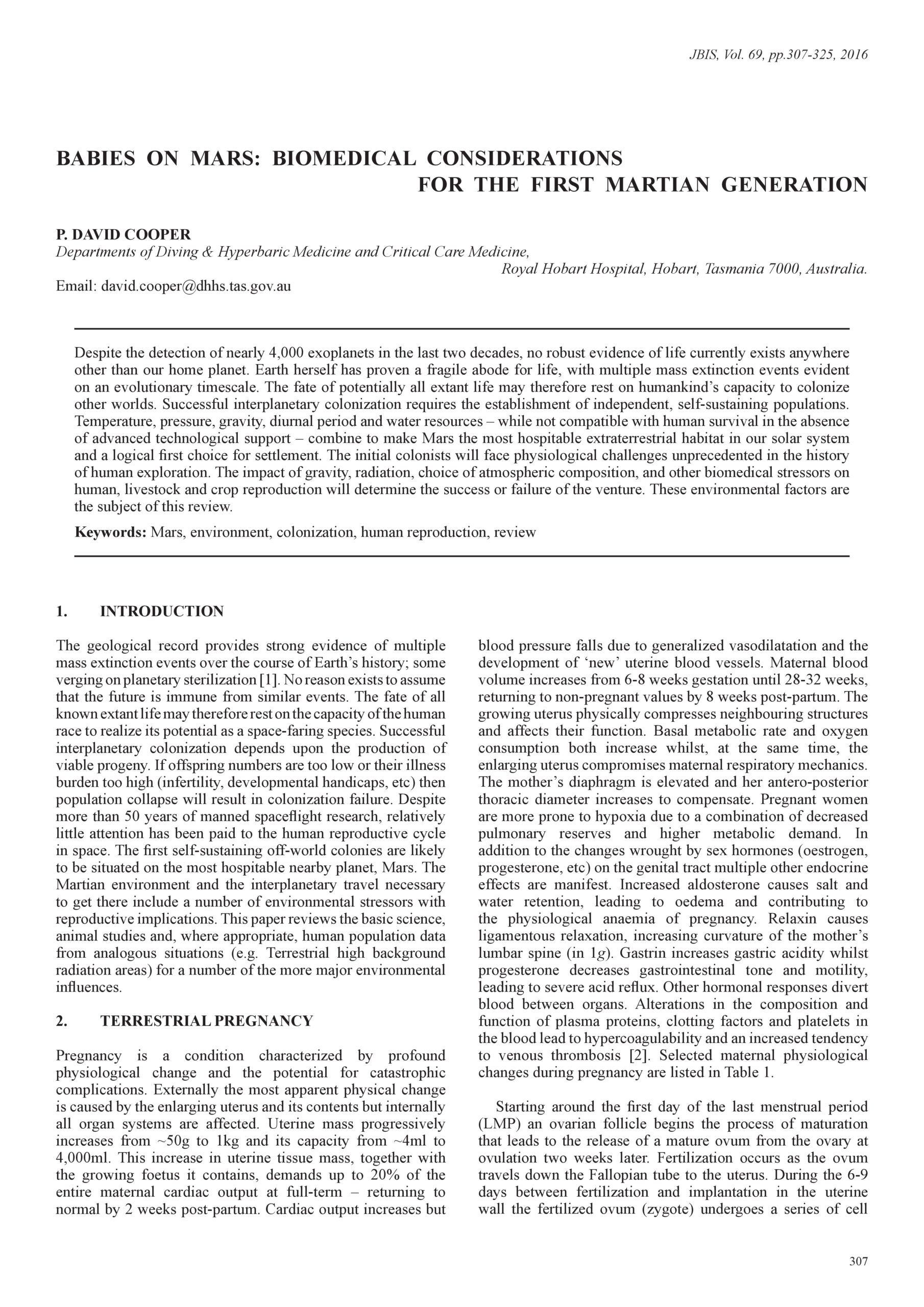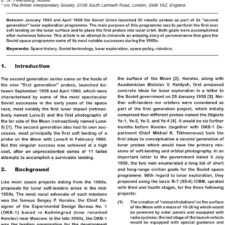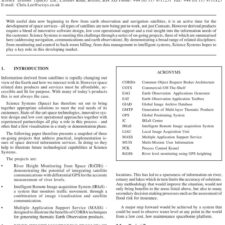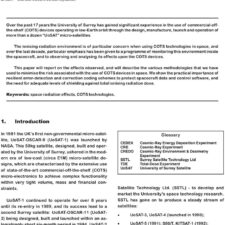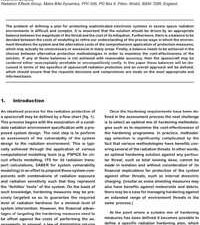Babies on Mars: Biomedical Considerations for the First Martian Generation
£5.00
F. D. Cooper (2016), JBIS, 69, pp.307-325
Refcode: 2016.69.307
Keywords: Mars, Environment, Colonization, Human reproduction, Review
Abstract:
Despite the detection of nearly 4,000 exoplanets in the last two decades, no robust evidence of life currently exists anywhere other than our home planet. Earth herself has proven a fragile abode for life, with multiple mass extinction events evident on an evolutionary timescale. The fate of potentially all extant life may therefore rest on humankind’s capacity to colonize other worlds. Successful interplanetary colonization requires the establishment of independent, self-sustaining populations. Temperature, pressure, gravity, diurnal period and water resources – while not compatible with human survival in the absence of advanced technological support – combine to make Mars the most hospitable extraterrestrial habitat in our solar system and a logical first choice for settlement. The initial colonists will face physiological challenges unprecedented in the history of human exploration. The impact of gravity, radiation, choice of atmospheric composition, and other biomedical stressors on human, livestock and crop reproduction will determine the success or failure of the venture. These environmental factors are the subject of this review.

